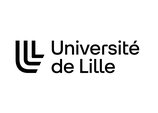Advanced NMR Spectroscopy
- Duration: 6 weeks
- Effort: 24 hours
- Pace: ~4 hours/week
- Languages: English
What you will learn
At the end of this course, you will be able to:
- understand how liquid-state NMR experiments work;
- find out how NMR can analyze biological macromolecules and mixtures of metabolites;
- discover the principles to acquire MRI images.
Description
The NMR phenomenon is widely used in MRI to form pictures of our organs and tissues. NMR spectroscopy is also a key tool to analyze biological molecules, such as proteins and carbohydrates, as well as complex biological or chemical mixtures in metabolomics approaches.
“Advanced NMR spectroscopy” is the second course of a comprehensive three-part online learning program on NMR. It aims at providing the participants with advanced knowledge about NMR.
In particular, it presents tools and concepts such as product operators, coherence selection, and relaxation needed to understand how NMR techniques work, as well as specific techniques used to analyze particular samples, such as proteins, carbohydrates and mixtures of metabolites, or to acquire MRI images.
This course is intended for undergraduate and graduate students as well as educators and professionals who wish to deepen their understanding of NMR experiments.
Format
During the six weeks of the MOOC you will learn theoretical principles and experimental techniques to understand NMR experiments, through video lectures as well as discussions with other participants and professors through the discussion forum.
Through a practical course filmed at the spectrometer, you will also be trained to conduct NMR experiments on a protein in solution.
Weekly quizzes will let you test your comprehension chapter by chapter.
This MOOC is taught in English.
However, subtitles in simplified Chinese and Japanese are also provided.
Prerequisites
The participants should have some basic knowledge of NMR spectroscopy and its application for small organic molecules in solution.
Assessment and certification
The acquired knowledge will be tested through practice and graded quizzes as well as a final exam. Your final grade is a weighted average of your grades obtained for the graded quizzes and the final exam. You will earn a course completion badge for this MOOC provided your final grade is above 65%.
Course plan
- Week 1: Operator description of NMR
- Week 2: Relaxation
- Week 3: Coherence selection
- Week 4: Protein NMR
- Week 5: Practical course and NMR metabolomics
- Week 6: NMR of glycans and MRI
Course team
Olivier Lafon
Categories
Robert Schneider
Categories
Patrick Giraudeau
Categories
Luisa Ciobanu
Categories
Yann Guérardel
Categories
Organizations
Acknowledgements
- In order to give access to the content to a larger audience subtitles in simplified Chinese and Japanese are provided. We acknowledge :
- Dr. Ming Shen, associate professor at East China Normal University, P. R. China, for the translation of the subtitles into simplified Chinese
- Dr. Akiko Sasaki for the translation of the subtitles into simplified Japanese
- We thank the CEA Saclay Neurospin team for the production of the videos on MRI Practical course and notably :
- Romain Gaudin, PhD student
- Florence Mousson, Communication officer for the Frédéric-Joliot Institute for Life sciences - CEA
License
License for the course content

Attribution-NonCommercial-NoDerivatives
You are free to:
- Share — copy and redistribute the material in any medium or format
Under the following terms:
- Attribution — You must give appropriate credit, provide a link to the license, and indicate if changes were made. You may do so in any reasonable manner, but not in any way that suggests the licensor endorses you or your use.
- NonCommercial — You may not use the material for commercial purposes.
- NoDerivatives — If you remix, transform, or build upon the material, you may not distribute the modified material.
License for the content created by course participants

Attribution-NonCommercial-NoDerivatives
You are free to:
- Share — copy and redistribute the material in any medium or format
Under the following terms:
- Attribution — You must give appropriate credit, provide a link to the license, and indicate if changes were made. You may do so in any reasonable manner, but not in any way that suggests the licensor endorses you or your use.
- NonCommercial — You may not use the material for commercial purposes.
- NoDerivatives — If you remix, transform, or build upon the material, you may not distribute the modified material.






